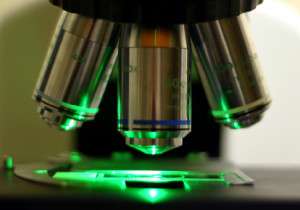I have been using Propecia since it became available on the market, which is quite a few years. Have there been any adverse effects of using Propecia over a long period of time? Does this medication harm the liver in anyway?
Concerned,
Jason
– – – – – – – – – – –
Dear Jason,
Finasteride was first approved by the FDA in 1992 as Proscar. As you’re probably aware, Proscar is a 5 mg dosage of Finsateride that is proscribed for the treatment of BPH or prostate enlargement. The 1 mg dose of finasteride, approved as Propecia in December of 1997, was the first truly effective treatment for male pattern hair loss.
To my knowledge, in the sixteen years that finsateride has been on the market there have been no reports of any adverse effects on the liver of those using the drug for an extended period of time. As always, I have to state clearly that I am not a physician and that my opinions and knowledge concerning hair loss and its treatments are based on extensive research and reporting on the subject as a consumer advocate and hair loss educator.
With this said, it’s important to note that Propecia cuts PSA levels in half after one year of use. PSA stands for prostate-specific antigen and is a protein produced by the cells of the prostate gland. The PSA blood test is commonly used to check for signs of prostate cancer and other related prostate problems. According to experts, men with prostate cancer often have elevated PSA levels because cancer cells make excessive amounts of this protein, Generally higher PSA levels are indicative of more cancer cells being present in your body. Now this isn’t always the case, it is possible to have prostate cancer without having elevated PSA levels, but the PSA test has been shown to significantly increase the ability for physicians to make an early diagnosis of the disease which is paramount for early intervention.
Since Propecia is prescribed to young men in their 20s, 30s and 40s it is important to tell your doctor that you are taking the medication so that PSA levels can be more accurately determined. The general rule of thumb is to double the levels of those using Propecia for more than a year. It’s also imortant to note the the PSA blood test is not the only way for doctors to determine the presence of prostate cancer.
Another long term concern that has been discussed in literature is the relationship between long term use of finasteride and male breast neoplasia or breast cancer.
During a 4 to 6 year placebo-controlled study testing finasteride 5 mg on 3,047 men, there were 4 cases of breast cancer in men treated with Proscar but no cases in men given placebo. In another 4 year placebo controlled study testing Proscar using 3,040 men, there were 2 cases of breast cancer in placebo treated men, but no cases were reported in men treated with Proscar. To my knowledge there have been no significant reports that can directly connect long term use of finasteride to male breast cancer.
As far as prostate cancer, the long term use of finasteride has recently been linked to a significant decrease in the risk of developing prostate cancer. Finasteride is also now being prescribed as a preventative treatment to some high risk patients, such as those with a strong family history of prostate cancer.
On a personal note, I have been using the drug for more than fourteen years and at this point have experienced no adverse side effects that I am aware of. There are countless men all over the world who are successfully treating their hair loss with Propecia. In my opinion, at this point there is no known reason to be concerned about long term adverse side effects.
Hope this helps,
Regards,
Spencer Kobren
Host of The Bald Truth Radio Show
Founder, American Hair Loss Association
Founder and Director of Consumer/Patient Affairs, International Alliance of Hair Restoration Surgeons (IAHRS.ORG)





